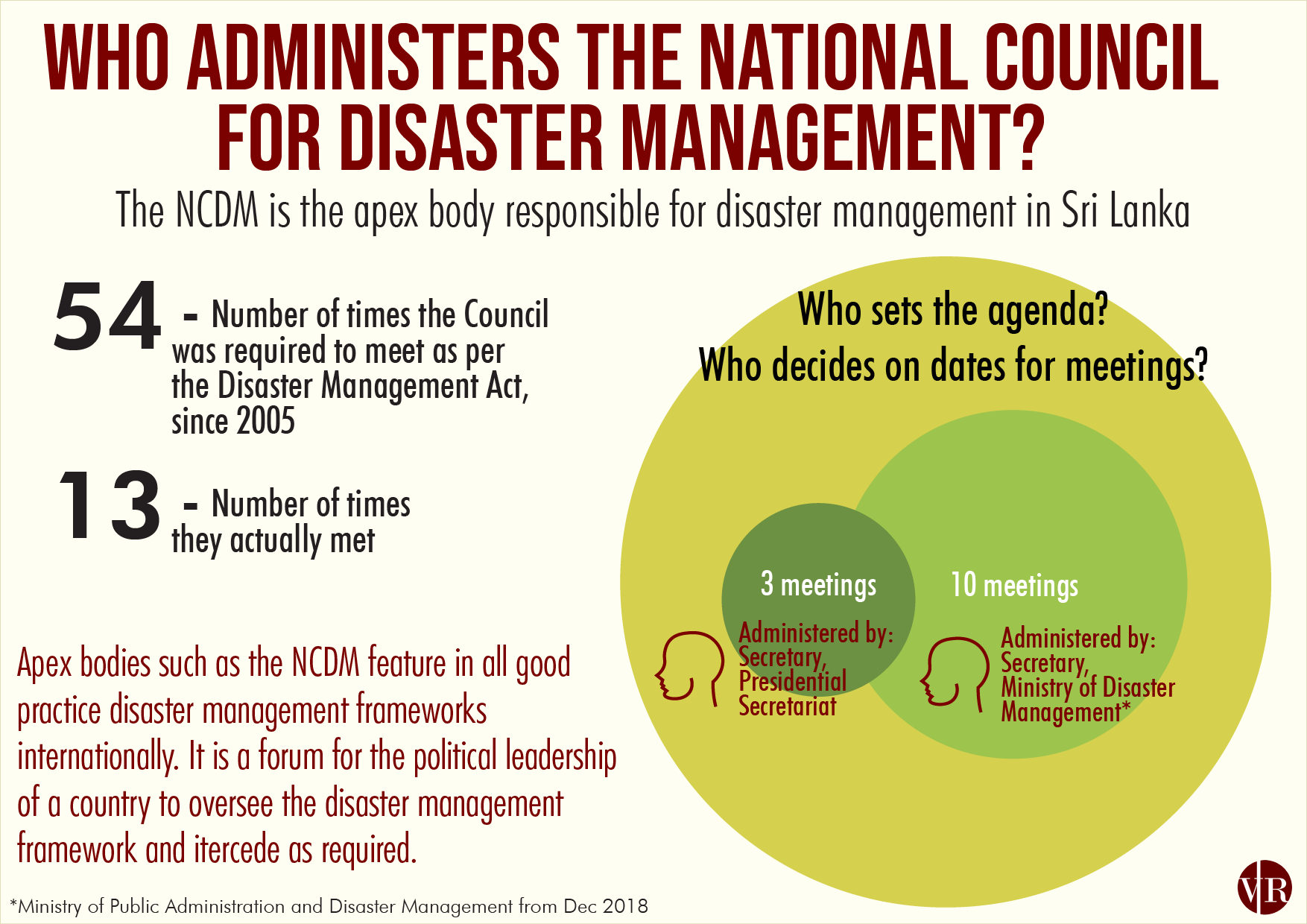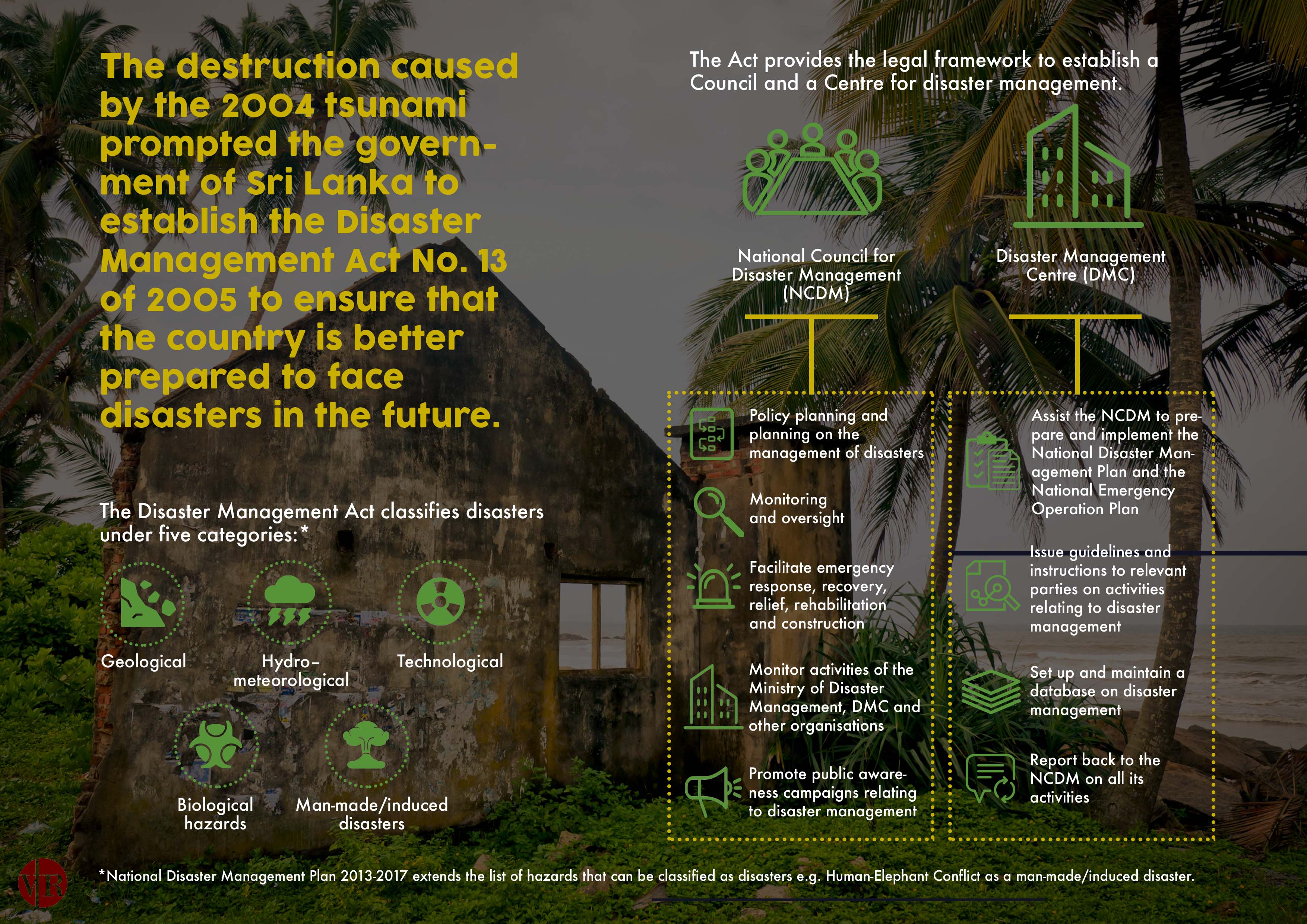Sri Lanka enacted the Disaster Management Act No. 13 of 2005 following the most devastating natural disaster to hit the island in recent times, the tsunami in December 2004. The objective was to ensure that the country is better prepared to face natural disasters in the future.
While this is a positive step in making Sri Lanka disaster resilient, key implementation gaps prevent the country from reaping the benefits of the Act. Using information gathered through Right to Information (RTI) requests, Verité Research highlights these implementation gaps and the importance of fixing them through the platform UNLOCKED
Fixing the identified implementation gaps will take Sri Lanka closer to achieving Sustainable Development Goal 11, which is to make cities and human settlements inclusive, safe, resilient and sustainable.

